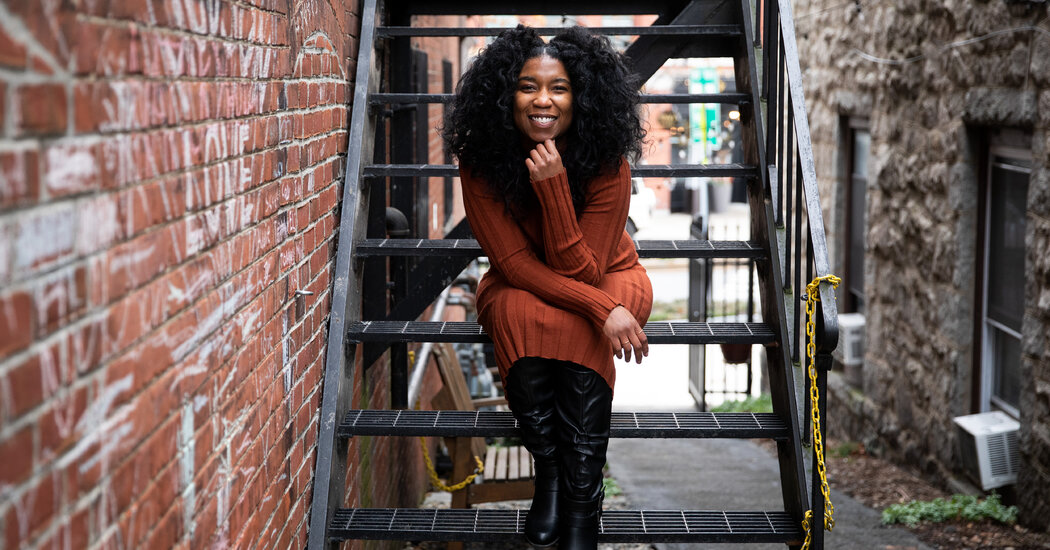
Ms. Donaldson, a Harvard-educated lawyer, developed her brand after writing her first book, “Thank God I’m Natural.” Almost 20 years ago, after she stopped relaxing her hair and learned to embrace her kinks and curls, she had an “aha” moment.
“It was like, ‘Thank God, I’m natural,’” she said. “Thank God, I can go swimming, not sit in the hair salon, walk in the rain. I can do all of these things.”
Ms. Donaldson never set out to be an entrepreneur, she said, but she saw tech start-ups led by young, white men creating innovative products and thought she could do it, too.
Like Ms. Rodriguez, Ms. Donaldson began the company while working full-time at her day job. To her family, starting a hair-care line lacked the prestige of being a corporate lawyer, but she pressed on, frustrated by the lack of industry support at the time.
“You’re scared because you’re growing this company, and you have no blueprint for it,” she said. “There was Carol’s Daughter, there was Miss Jessie’s, but you always feel like, ‘How do I grow that big?’”
The Politics of Black Hair
Today, wearing natural Black hair is a statement of pride, a repudiation of an imposed beauty standard and a determined declaration of Black identity. Further emboldened by the passage of the Crown Act in 2019, which banned discrimination based on hair style and texture and has now been adopted by 14 states, Black women now have the cultural, and legal, right to wear their hair in a manner of their choosing.






